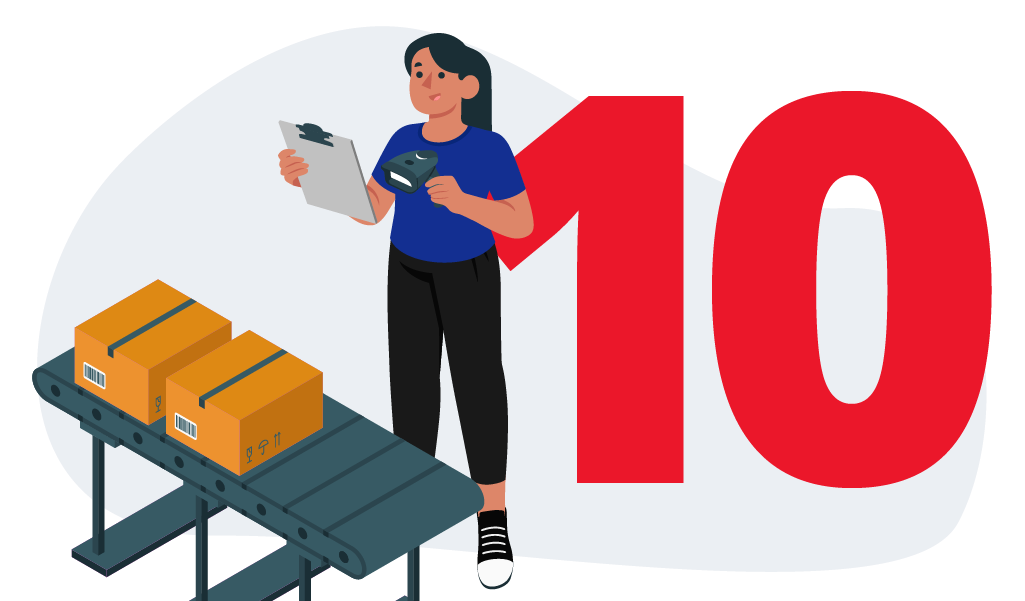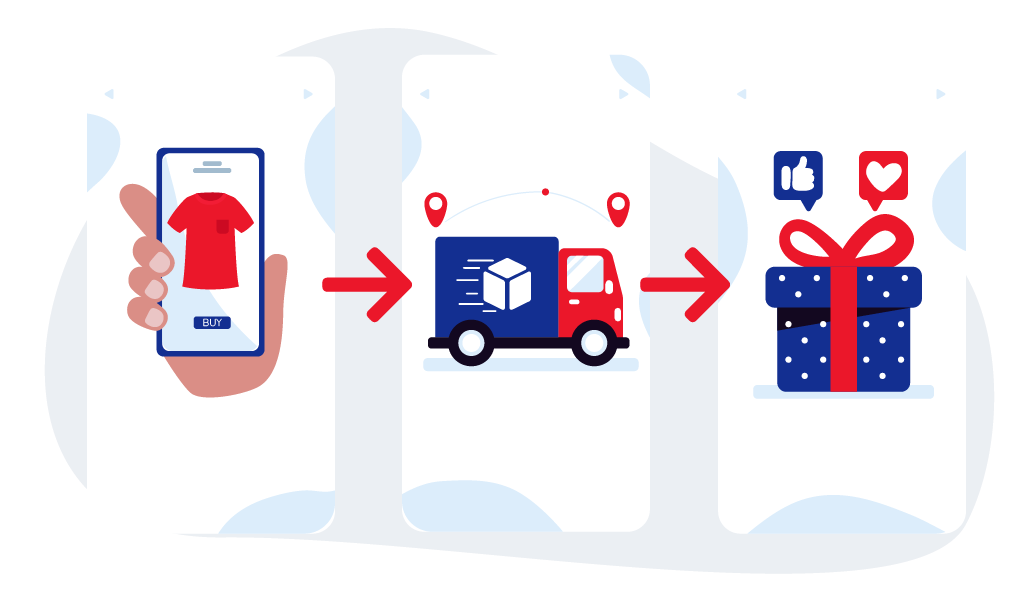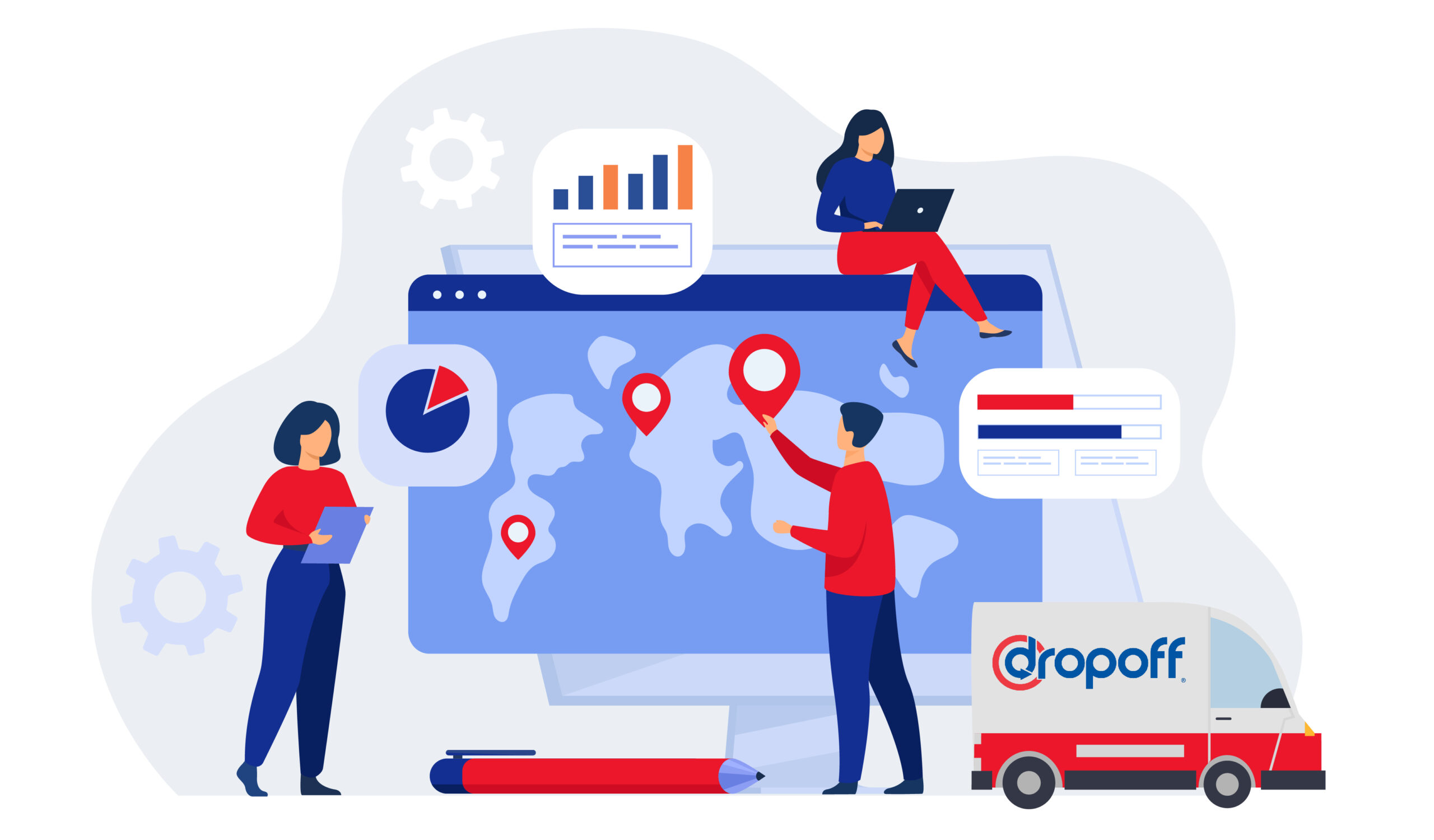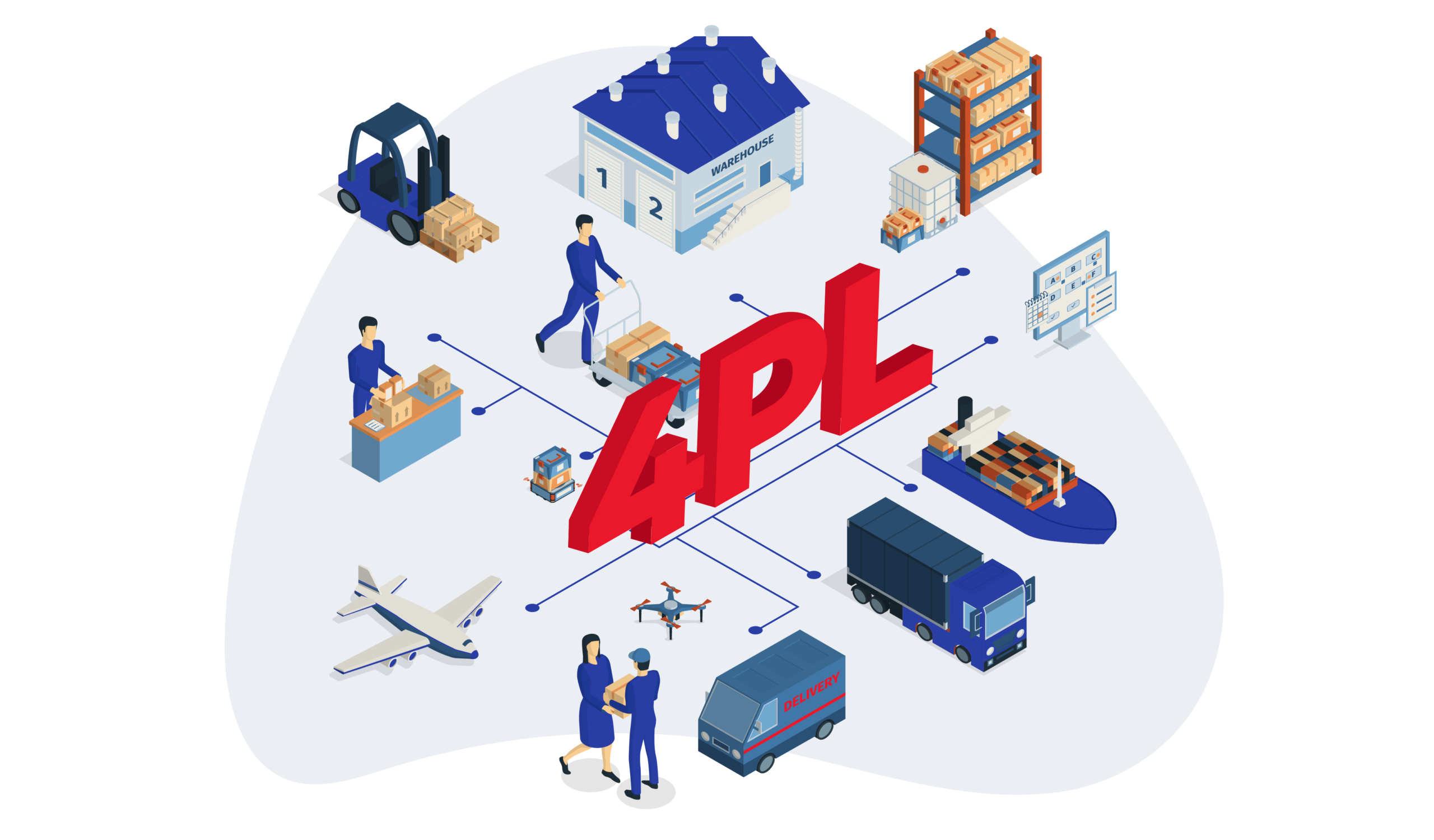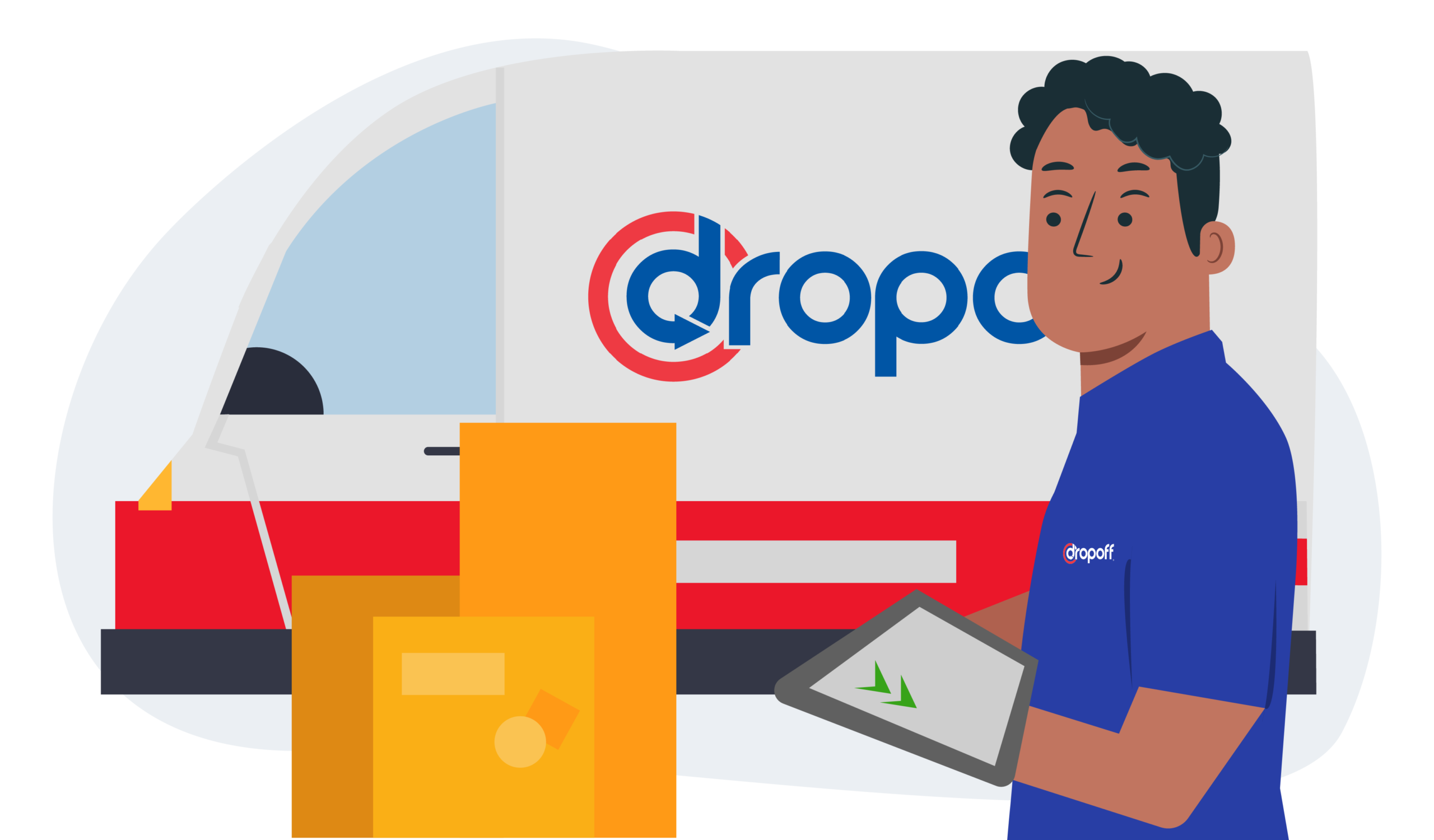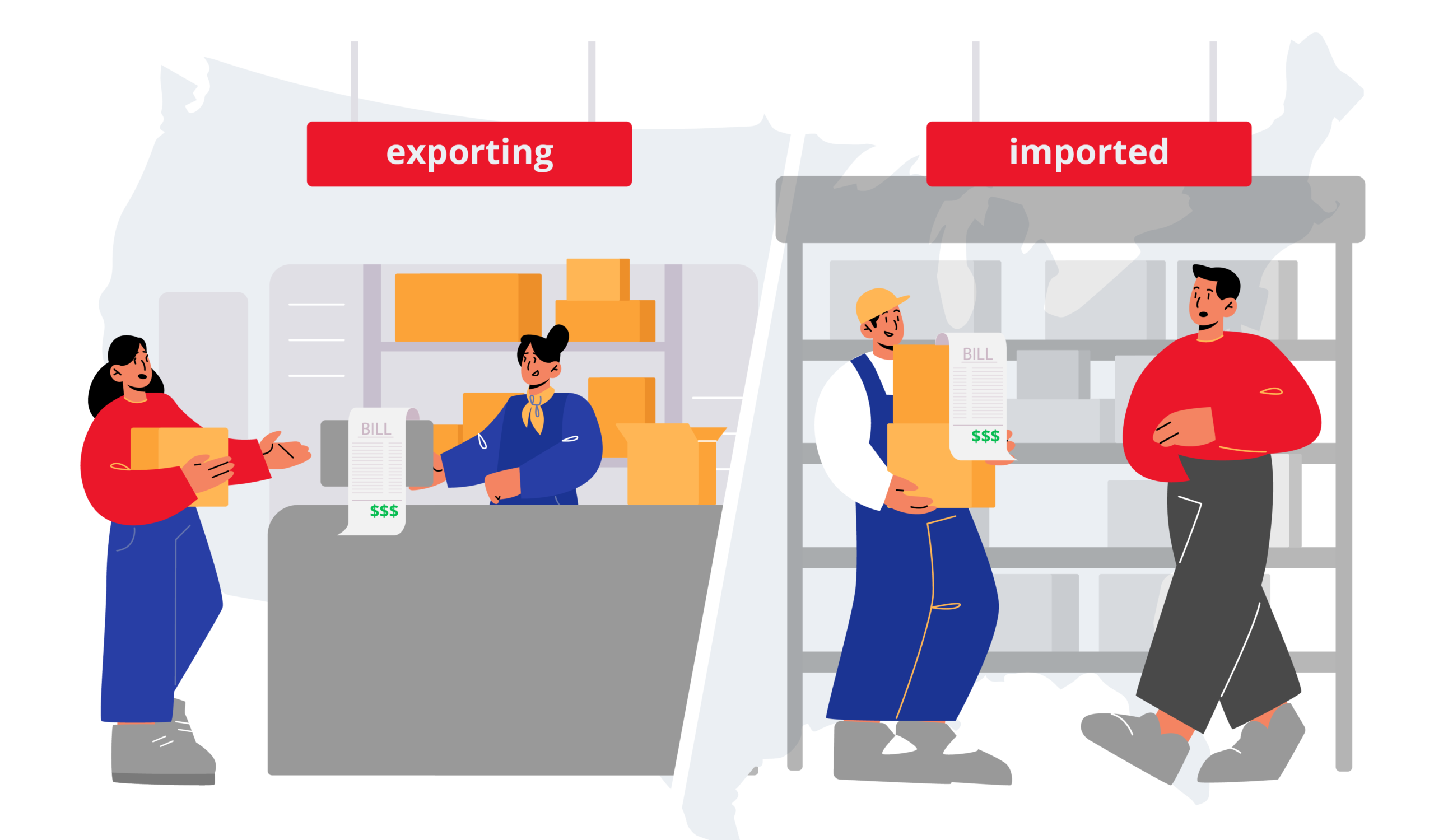What Is a Logistics Company and How To Choose One in 2024?
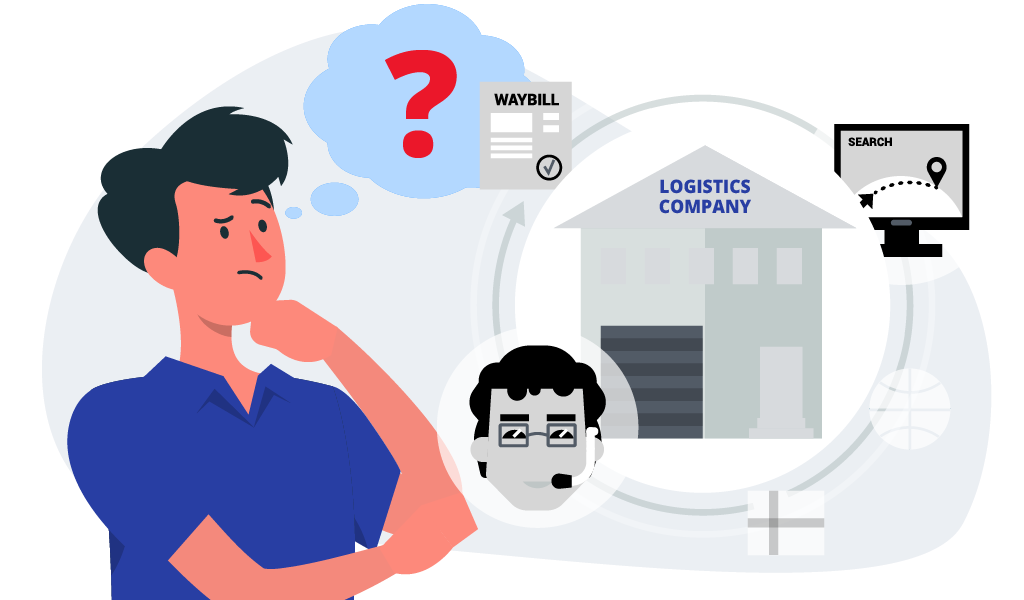
As of today, the Global Logistics Market is valued at $261.5 billion. While it’s already impressive, experts suggest that with the advent of technology and online shopping, the logistics industry is expected to generate a CAGR of 11.8%, reaching a market value of $570.9 billion in 2030. This figure alone shows how logistics has become the lifeblood of the global economy, playing a central role in how consumers perceive products and services.
In 2024, the business world is poised to be more interconnected and fast-paced than ever before. Logistics, the lifeblood of the global economy, plays a central role in ensuring products and services move seamlessly from suppliers to consumers. Without an efficiently optimized supply chain, a business wouldn’t be able to thrive in this competitive market.
In this article, we will explore the realm of logistics companies, particularly understanding their core functions, diverse types, and benefits to help you decide how to streamline an efficient logistics process in 2024.
What is a logistics company?
At its core, a logistics company streamlines the multifaceted journey undertaken by a company’s products, services, and information, ensuring their seamless voyage from the moment they depart their point of origin to their secure arrival at the final destination. This orchestration is rooted in meticulous planning, precise execution, and vigilant oversight to ensure that goods are not only delivered on time but also in optimal condition.
Before, logistics operations were carried out by businesses themselves. However, as the world becomes more interconnected, the logistics processes of businesses have become more complicated, initiating the need for logistics providers. Now, logistics services have evolved from mere transportation of goods from one site to another to outsourcing supply chain management for businesses to ensure ROI. To learn more about 5PL logistics and its predecessors, read 5PL Logistics: Everything You Need To Know About
What does a logistics company do?
Aside from aiding businesses to implement and oversee an efficient supply chain, logistics companies are also expected to resolve challenges businesses might face in today’s courier landscape.
To help you understand the scope of work a logistics company is expected to do, here are some of their primary responsibilities:
Transportation Management
This function serves as the heartbeat of logistics companies, where they operate as the maestros of the transportation orchestra. In fact, the global transportation management market size is expected to reach a whopping 17.8 billion by 2025.
Logistics companies orchestrate the movement of goods across various modes of transport, whether by road, sea, air, or rail. This includes meticulous route planning, carrier selection, and precise delivery execution. This not only ensures the punctual arrival of products but also optimizes routes to minimize fuel costs and reduce environmental impact.
Warehousing
Recent surveys suggest that in the USA alone, 43% of businesses struggle to maintain efficient warehouse operations. Not to mention, it’s such a costly activity, especially for small to medium enterprises.
Logistics companies serve as the custodians of your goods, providing secure and efficient warehousing services. Warehousing encompasses everything from proper stacking and labeling to efficient inventory management, ensuring that products are readily available when needed. A well-managed warehouse is the linchpin in transitioning from operational chaos to streamlined efficiency.
Inventory Management
Effective logistics companies take on the role of guardians of your inventory, ensuring that you maintain the ideal volume of products at all times. They employ sophisticated tools and strategies to optimize inventory levels, saving your business money while enhancing customer satisfaction.
In today’s market, where most businesses already employ dynamic pricing, real-time database updates, and other smart inventory management solutions, it’s paramount to get a logistics company that can provide you with these innovative tools that will help you stay on top of your inventory.
Supply Chain Optimization
The dynamic nature of the market demands continuous adaptation to remain competitive. Logistics companies are the supply chain’s troubleshooters, analyzing each step to identify bottlenecks and inefficiencies. They work to improve and streamline these processes, encompassing route optimization, demand forecasting, and supplier relationship management.
Order Fulfillment
Logistics companies assume responsibility for the complete order fulfillment process, from when an order is placed to when the product reaches the customer’s hands. This comprehensive role involves picking products from the warehouse, secure packaging, and accurate and prompt shipping. The objective is not only to fulfill orders but to do so efficiently and accurately, elevating customer satisfaction.
Risk Management
The world is rife with uncertainties, ranging from weather-related delays to geopolitical tensions. Logistics companies navigate these turbulent waters, monitoring potential disruptions and managing risks. They develop contingency plans to address unforeseen challenges, ensuring the resilience and robustness of your supply chain.
In essence, a logistics company is your ally in ensuring that your supply chain operates like a finely tuned machine. They oversee the intricate ballet of goods and information from start to finish, ensuring that every step is executed precisely and efficiently.
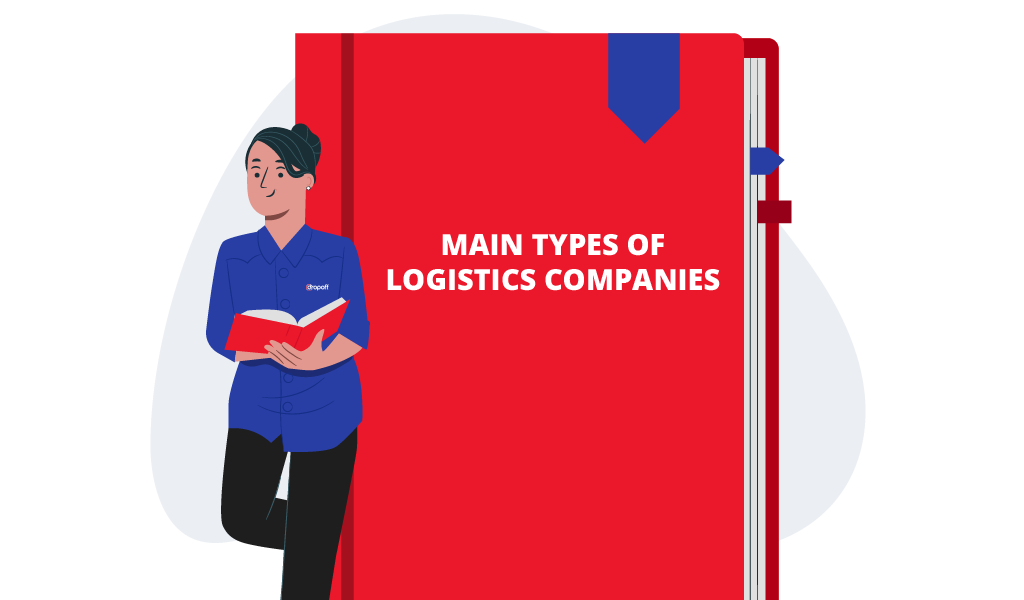
What are the main types of logistics companies?
The advent of Delivery as a Service has enabled businesses to get the exact delivery and courier services they need for their businesses. The logistics industry recognizes that when it comes to supply chain management, there is now a one-size-fits-all model that can fit all the requirements of companies across numerous industries.
While extremely helpful, customized delivery services could be overwhelming, especially for businesses starting to crowdsource their supply chain. With this in mind, we’ve come up with a list of logistic company categories that may help you identify which services you need for 2024:
Freight Brokers
These logistics companies act as intermediaries, bridging the gap between businesses needing shipping services and carriers like trucking companies, airlines, and shipping corporations.
Freight brokers are experts in matching cargo with the right transportation providers, negotiating favorable rates, and guaranteeing the safe and timely delivery of goods. They play a pivotal role in the supply chain, especially for businesses seeking flexible and cost-effective shipping solutions.
Third-Party Logistics (3PL) Providers
3PLs are comprehensive logistics partners offering a wide array of services. They function as outsourced logistics departments for businesses, providing end-to-end solutions. Their services typically encompass transportation management, warehousing, inventory management, and supply chain optimization, and often extend to value-added services such as packaging, labeling, and order fulfillment.
3PLs offer businesses a one-stop solution for all their logistics needs, enabling them to focus on their core competencies while the 3PL manages the intricacies of logistics. To learn more about this, read How Does 3PL Integration Work?
Courier and Express Delivery Services
These logistics companies are experts in swift, small-scale deliveries. They are ideal for businesses requiring quick, on-demand deliveries of documents, parcels, or small goods. Courier services frequently cater to same-day or next-day deliveries, which is critical for businesses with tight delivery deadlines. They are often engaged by e-commerce companies, healthcare providers, legal firms, and other industries with similar time-sensitive demands.
Confused about whether you need a courier or a carrier service provider? Read Carrier Vs Courier: What’s The Difference?
Trucking Companies
Trucking companies are a subset of logistics companies specializing in overland transportation. They operate a fleet of trucks and drivers to transport goods by road. Trucking companies are indispensable for long-haul transport and the distribution of goods within a country or region. They offer different types of trucks, ranging from small vans for local deliveries to large tractor-trailers for cross-country shipments.
Read On-Demand Shipping & Trucking: Everything You Need To Know to learn more about the ins and outs of trucking service providers.
Air Cargo Services
These logistics companies are specialists in air freight, delivering rapid delivery services for businesses needing swift transportation of goods across long distances. Air cargo services are particularly essential for time-sensitive and high-value shipments, such as electronics, pharmaceuticals, and perishable goods.
Maritime Shipping Companies
These logistics companies are engaged in shipping goods by sea. They manage cargo ships, containers, and port logistics to transport goods across oceans and international borders. Maritime shipping companies are vital for businesses involved in international trade, handling the movement of goods between continents.
Rail Freight Companies
Rail logistics companies focus on transporting goods by rail, which is particularly cost-effective for moving large quantities of bulk goods over long distances. Industries like agriculture, mining, and manufacturing often rely on rail freight services.
Each type of logistics company specializes in a particular aspect of the supply chain, choosing which one to partner with depending on a business’s unique needs and requirements.

5 Signs That Your Business Needs a Logistics Company
While truly powerful, outsourcing logistics services isn’t for all. It requires a certain level of operations and revenue generation to become a sustainable business framework.
Here are some signs that your business is ready for a third-party logistics provider:
1. Growing Complexity
Do you feel like you need to upscale the sourcing of your raw materials? Do you feel like you’re ready to expand your offered products? Or do you feel like your business is ready to cater to more customers? If your answer is yes to any of these, then you’re ready for a logistics provider.
As your business expands and your supply chain grows more intricate, in-house management may no longer suffice. Complex supply chains involve multiple suppliers, diverse transportation modes, and global distribution networks. A logistics company can simplify this complexity, streamline operations, and reduce costs through its expertise in handling intricate logistics processes.
2. Global Expansion
International markets offer great opportunities, but they also come with many regulatory, customs, and transportation challenges. A logistics partner experienced in global shipping can be invaluable in navigating these complexities, ensuring smooth operations, and helping you reach a global customer base with confidence.
3. Inventory Issues
Frequent stockouts or excess inventory can severely impact your business’s bottom line. A logistics company can help optimize inventory levels, implement just-in-time inventory management, and forecast demand accurately. This prevents overstocking, reduces storage costs, and ensures you never run out of crucial products.
4. Transportation Challenges
Finding reliable carriers, optimizing shipping routes, and ensuring timely deliveries can be a significant challenge. A logistics company has the connections, experience, and technology to source the right carriers, optimize routes for cost efficiency, and track shipments in real-time. This guarantees reliable and on-time deliveries, improving your customer satisfaction.
5. Limited Resources
Small businesses, in particular, may need more resources and expertise to manage logistics efficiently. Outsourcing to a logistics company allows you to leverage their experience and infrastructure without the need for significant investments in your logistics department. This frees up your resources and allows you to focus on your core competencies.

Tips to Choose a Logistics Company for Your Business in 2024
There are now numerous businesses offering logistics services to companies of all sizes. While such a competitive landscape is beneficial for businesses, choosing the right logistic provider has become more challenging.
To help you with this, here are some of the factors you should consider when choosing a logistics company for 2024:
1. Define Your Needs
Clearly articulate your logistics requirements. Determine whether you need transportation management, warehousing, inventory control, or supply chain optimization. Specify any industry-specific or regulatory compliance needs. This step helps you find a logistics partner that aligns with your unique demands.
2. Check Experience
Look for a logistics company with a proven track record in your industry or a similar one. Experience matters, as they will better understand your specific challenges and have established relationships with carriers and suppliers relevant to your business.
3. Technology Capabilities
Ensure the logistics company utilizes advanced technology solutions for logistics management. Real-time tracking, reporting, and analytics are essential for visibility and decision-making. A tech-savvy partner can offer better transparency and efficiency in your supply chain.
4. Reputation and References
Research the logistics company’s reputation. Read reviews, ask for testimonials, and request references from their current or past clients. This helps you gauge their reliability, customer service, and the quality of their services.
5. Cost Transparency
Understand the pricing structure and any potential additional fees. Transparency in cost structure allows you to budget effectively and avoid unexpected financial surprises. It’s crucial to have a clear understanding of how their services will impact your bottom line.
6. Flexibility and Scalability
Consider whether the logistics partner can adapt to your changing needs and business growth. A flexible and scalable logistics company can grow with your business and adjust its services as required, ensuring a long-term partnership that accommodates your evolving requirements.
Why Choose Dropoff as Your Logistics Partner in 2024?
In the ever-evolving landscape of logistics, Dropoff, a leading 3PL provider in 2024, emerges as an exceptional choice for businesses seeking a logistics partner. Their strength lies in their ability to deliver tailored logistics solutions that match your unique business needs, from transportation management to supply chain optimization.
With a proven track record and a wealth of experience across various industries, Dropoff brings expertise that ensures the efficient management of your supply chain.
What truly sets Dropoff apart is its embrace of cutting-edge technology, providing real-time tracking, reporting, and analytics to enhance visibility and precision in logistics. They pride themselves on on-time deliveries, safeguarding the integrity of your products, and ensuring customer satisfaction.
Moreover, Dropoff offers comprehensive services, serving as a one-stop solution for all your logistics requirements. Their unwavering reliability and commitment to efficiency make them an ideal choice for businesses looking to gain a competitive edge in the ever-evolving world of logistics, promising not just logistics services but also peace of mind and operational excellence.
FAQs
A logistics company helps businesses move goods and manage their supply chain efficiently, handling tasks such as transportation management, warehousing, and inventory control.
Outsourcing logistics services can simplify complex supply chains, offer cost savings, and allow you to focus on your core business activities.
When selecting a logistics company, consider factors like your specific needs, experience, technology capabilities, and reputation in the industry to make an informed choice.

